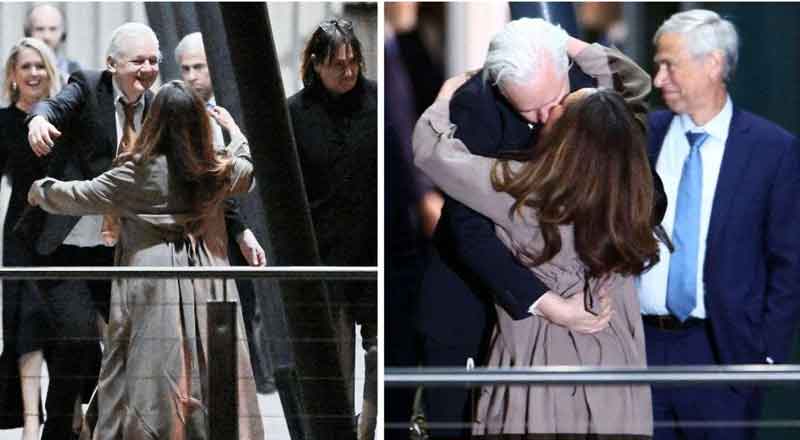Julian Assange received a jubilant welcome in Australia on Wednesday after admitting guilt for violating US espionage laws, marking the end of a 14-year legal saga. Upon landing at the city’s airport, he passionately kissed his wife, Stella. Earlier, Assange raised his fist in the air to applause and cheers of “welcome home” from supporters, who also shouted expressions of gratitude and love towards him. Cries of “Thank you, Julian” and “We love you, Julian” echoed through the terminal.
Later, Assange embraced his father, John Shipton, before heading to a Royal Australian Air Force base. His release follows a plea of guilty to a single count of espionage in a deal with US authorities, made earlier today in a court in Saipan. According to court records, he received a sentence equivalent to time served – the 62 months spent in Belmarsh prison – with the US dropping 17 other espionage charges against him.
Australia Prime Minister Anthony Albanese, who has lobbied for years to free Assange, said he had spoken to him by phone after his plane landed. “I had a very warm discussion with him this evening; he was very generous in his praise of the Australian government’s efforts,” Albanese told an earlier press conference. “The Australian government stands up for Australian citizens; that’s what we do.”
Assange’s arrival ends a saga in which he spent more than five years in a British high-security jail and seven years in asylum at the Ecuadorean embassy in London, battling extradition to Sweden on sexual assault allegations and to the US, where he faced 18 criminal charges.
Those charges stemmed from WikiLeaks’ release in 2010 of hundreds of thousands of classified US military documents on Washington’s wars in Afghanistan and Iraq – one of the largest breaches of secret information in US history. During a three-hour hearing held earlier in the US territory of Saipan, Assange pleaded guilty to one criminal count of conspiring to obtain and disclose classified national defense documents but said he had believed the US Constitution’s First Amendment, which protects free speech, shielded his activities.
“Working as a journalist, I encouraged my source to provide information that was said to be classified in order to publish that information,” he told the court. “I believed the First Amendment protected that activity, but I accept that it was…a violation of the espionage statute.”
(With inputs from agencies)





